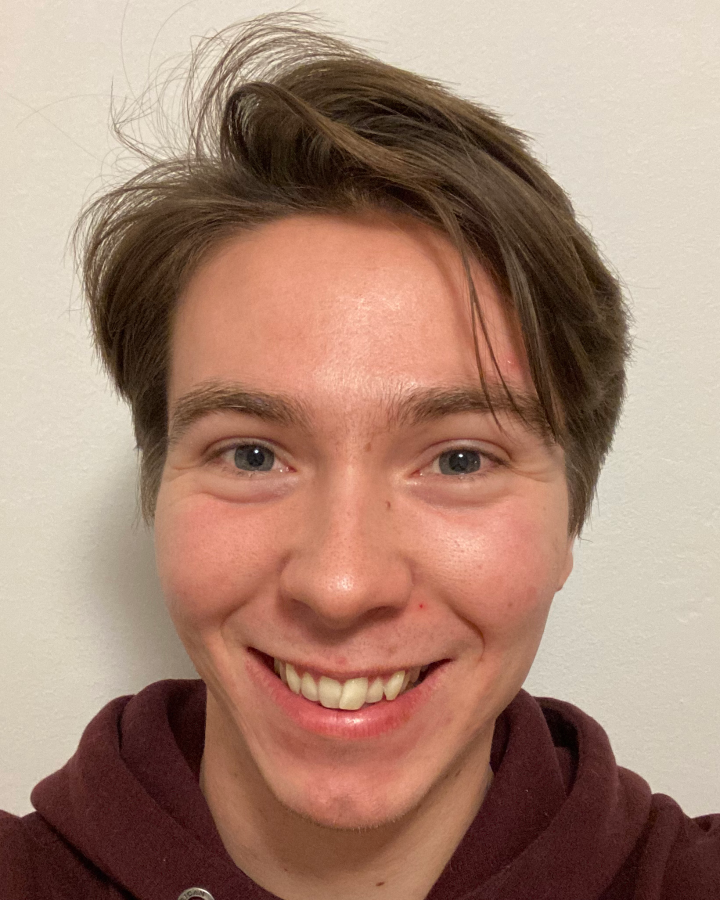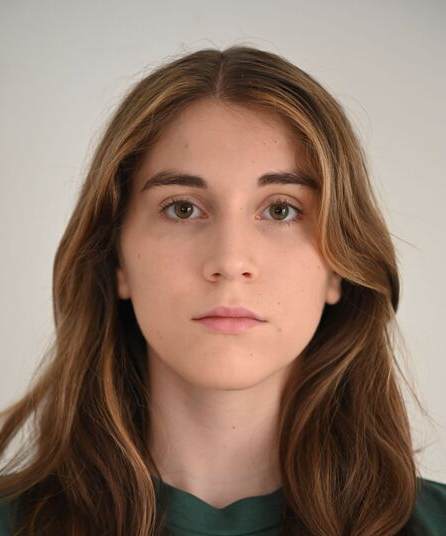Manuel Wimmer

Privatdoz. Mag.rer.soc.oec. Dr.rer.soc.oec.
Manuel Wimmer
- Email: manuel.wimmer@tuwien.ac.at
- Phone: +43-1-58801-18829
- Office: HG0219 (1040 Wien, Favoritenstrasse 11)
- About: UML, Object-oriented Modeling, Domain-specific Modeling, Metamodeling, Model Transformation, Software Engineering, Web Engineering, Model Engineering, Industrial Engineering, Automation Engineering, Multi-disciplinary Engineering
- Orcid:
- Keywords: Model Driven Engineering, Web Engineering, Model Transformation
- Roles: Affiliated
Publications
ProfileGen - ein Eclipse Plugin für Interoperabilität zwischen DSML und UML
 Assad Lodhi
Assad Lodhi Manuel Wimmer
Manuel WimmerKeywords: interoperability, DSML, UML, metamodeling, mappingmodel, WebML
Astract: Current software development projects comprise the development of complex software systems under immense time pressure. In the past decade, model-driven software development (MDSD) has become mainstream to tackle these challenges. In MDSD, domain specific modelling languages (DSML) are becoming more and more important. These languages allow to concisely represent all the peculiarities of a given domain in a model.
But being so specific, interoperability is needed with standardized modeling languages such as UML, because they offer a more common way of communication between different stakeholders. At the moment, interoperability can only be achieved by manually creating transformations between DSMLs and UML which is a challenging task.
This thesis presents a tool named ProfileGen, which tackles this challenge by proposing a semi-automatic approach for generating such transformations needed for interoperability between DSMLs and UML. In particular, a mapping language is presented which allows to manually link DSML elements with UML elements on a high-level of abstraction.
From such mappings, a generator framework automatically creates all artifacts needed for interoperability, including transformations from the DSMLs to UML and vice versa, as well as UML profiles for ensuring information loss free transformations .The approach is evaluated by a real-world case study, namely integrating WebML (a DSML for data-intensive Web applications) with UML.
Lodhi, A. (2012). ProfileGen - ein Eclipse Plugin für Interoperabilität zwischen DSML und UML [Diploma Thesis, Technische Universität Wien]. reposiTUm. http://hdl.handle.net/20.500.12708/161092
Keywords: Refactoring, ATL, Model Transformations
Astract: The ATLAS Transformation Language (ATL) is a Language to describe rule-based mode-tomodel transformations. The more complex, different and interwoven the source and target model are, the more comprehensive the rules get. This results in detoriorated readability, maintainability and reusability and longer execution times of the transformations. At the moment transformations can only be modified by applying atomic operations. Combined operations have not yet been developed that would allow to improve transformations by restructuring.
The context of this thesis is the development of restructurings for ATL, so called refactorings, on the basis of existing work. These enable to transform ATL-transformations in a way that non-functional requirements and software quality attributes are improved.
A catalogue of refactorings was developed which separates into renaming, restructuring and optimizations for runtime speedup. There is a possibility to add domain-specific refactorings.
At the beginning existing transformations were analyzed and common 'bad smells' were derived by metrics and quality attributes like readability, maintainability and reusability. From this derivation the definition of the refactoring catalogue was created, which provides measures to eliminate bad smells. The catalogue is implemented using the ATL Refining Mode and is compared to an implementation in EMF Modeling Operations. The transformations of the ATLimplementation are metrically analyzed before and after each refactoring. Additionally the runtime of the transformations before and after the refactoring is timed and the number of executed bytecode statements is rated. The refactorings were evaluated regarding the application to other transformation languages (e.g. QVT-Relations).
Gniesser, P. (2012). Refactoring support for ATL-based model transformations [Diploma Thesis, Technische Universität Wien]. reposiTUm. http://hdl.handle.net/20.500.12708/161097
Automated verification of model transformations based on visual contracts
 Esther Guerra
Esther Guerra Juan de Lara
Juan de Lara Manuel Wimmer
Manuel Wimmer Angelika Kusel
Angelika Kusel Werner Retschitzegger
Werner Retschitzegger Johannes Schönböck
Johannes Schönböck Wieland Schwinger
Wieland SchwingerKeywords:
Astract: Model-Driven Engineering promotes the use of models to conduct the different phases of the software development. In this way, models are transformed between different languages and notations until code is generated for the final application. Hence, the construction of correct Model-to-Model (M2M) transformations becomes a crucial aspect in this approach.
Even though many languages and tools have been proposed to build and execute M2M transformations, there is scarce support to specify correctness requirements for such transformations in an implementation-independent way, i.e., irrespective of the actual transformation language used.
In this paper we fill this gap by proposing a declarative language for the specification of visual contracts, enabling the verification of transformations defined with any transformation language. The verification is performed by compiling the contracts into QVT to detect disconformities of transformation results with respect to the contracts. As a proof of concept, we also report on a graphical modeling environment for the specification of contracts, and on its use for the verification of transformations in several case studies.
Guerra, E., de Lara, J., Wimmer, M., Kappel, G., Kusel, A., Retschitzegger, W., Schönböck, J., & Schwinger, W. (2012). Automated verification of model transformations based on visual contracts. Automated Software Engineering, 20(1), 5–46. https://doi.org/10.1007/s10515-012-0102-y
Surveying Rule Inheritance in Model-to-Model Transformation Languages
 Manuel Wimmer
Manuel Wimmer Angelika Kusel
Angelika Kusel Werner Retschitzegger
Werner Retschitzegger Johannes Schönböck
Johannes Schönböck Werner Schwinger
Werner Schwinger Dimitris Kolovos
Dimitris Kolovos Richard Paige
Richard Paige Marius Lauder
Marius Lauder Andy Schürr
Andy Schürr Dennis Wagelaar
Dennis Wagelaar
Wimmer, M., Kappel, G., Kusel, A., Retschitzegger, W., Schönböck, J., Schwinger, W., Kolovos, D., Paige, R., Lauder, M., Schürr, A., & Wagelaar, D. (2012). Surveying Rule Inheritance in Model-to-Model Transformation Languages. The Journal of Object Technology, 11(2), 3:1. https://doi.org/10.5381/jot.2012.11.2.a3
Language-Specific Model Versioning Based on Signifiers
 Philip Langer
Philip Langer Manuel Wimmer
Manuel Wimmer Jeff Gray
Jeff Gray Antonio Vallecillo
Antonio Vallecillo
Langer, P., Wimmer, M., Gray, J., Kappel, G., & Vallecillo, A. (2012). Language-Specific Model Versioning Based on Signifiers. The Journal of Object Technology, 11(3), 4:1. https://doi.org/10.5381/jot.2012.11.3.a4
Projects
Multi-Paradigm Modelling for Cyber-Physical Systems (MPM4CPS)
Name: MPM4CPS; Title: Multi-Paradigm Modelling for Cyber-Physical Systems (MPM4CPS); Begins On: 2014-10-01; Ends On: 2019-05-31; Context: European Cooperation in Science and Technology (COST); View Project WebsiteCOSIMO: Collaborative Configuration Systems Integration and Modeling
Name: COSIMO; Title: COSIMO: Collaborative Configuration Systems Integration and Modeling; Begins On: 2014-01-01; Ends On: 2017-05-30; Context: Vienna Business Agency (WAW); View Project WebsiteARTIST: Advanced software-based seRvice provisioning and migraTIon of legacy Software
Name: ARTIST; Title: ARTIST: Advanced software-based seRvice provisioning and migraTIon of legacy Software; Begins On: 2012-10-01; Ends On: 2015-09-30; Context: European Commission; View Project WebsiteTROPIC: A Framework for Model Transformations on Petri Nets in Color
Name: TROPIC; Title: TROPIC: A Framework for Model Transformations on Petri Nets in Color; Begins On: 2009-03-01; Ends On: 2012-08-31; Context: Austrian Science Fund (FWF); View Project WebsiteAMOR: Adaptable Model Versioning
Name: AMOR; Title: AMOR: Adaptable Model Versioning; Begins On: 2009-02-01; Ends On: 2011-09-30; Context: SparxSystems Software GmbH; View Project WebsiteTeam
Business Informatics Group, TU Wien
Professors
Christian Huemer
Ao.Univ.Prof. Mag.rer.soc.oec.Dr.rer.soc.oec.
Dominik Bork
Associate Prof. Dipl.-Wirtsch.Inf.Univ.Dr.rer.pol.
Gerti Kappel
O.Univ.Prof.in Dipl.-Ing.inMag.a Dr.in techn.
Henderik Proper
Univ.Prof. PhDResearchers
Aleksandar Gavric
Univ.Ass. MEng. B.Eng.
Galina Paskaleva
Projektass.in Dipl.-Ing.inDipl.-Ing.in BSc

Marianne Schnellmann
Univ.Ass.in BSc MScMarion Murzek
Senior Lecturer Mag.a rer.soc.oec.Dr.in rer.soc.oec.
Marion Scholz
Senior Lecturer Dipl.-Ing.inMag.a rer.soc.oec.
Miki Zehetner
Univ.Ass. DI Bakk.rer.soc.oec. MScSyed Juned Ali
Univ.Ass. BSc MScStudent-Staff

Florian Fankhauser
Projektass. Dipl.-Ing.Julia Smejkal
BSc






